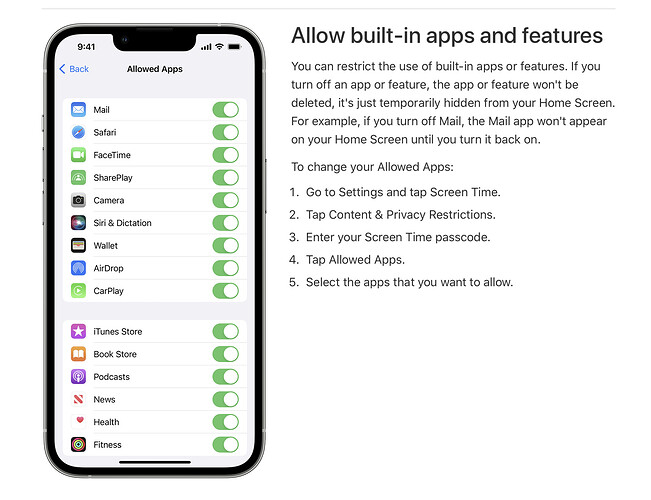I just downloaded the Scrivner app and synced it using Dropbox. Now I am set to write on the go (or in the middle of the night when I awake with sudden inspiration). However, I would really love it if the iOS app were passcode protected. Sometimes little ones get on my phone and it would be a huge bummer if they mass deleted or worse typed in random gibberish on a completed draft. I know I could restore from a local backup (on my laptop) but the peace of mind would be great. Thanks for the great product too!
Hello Isaac_Tait, and welcome to the forum.
Thank you for that feature request. We appreciate it.
As one option for safeguarding the data on the iOS version, we have this Knowledge Base article explaining how to create manual iOS backups.
Since Apple do not permit apps on their mobile devices to create automatic backups of your data like Scrivener 3 on a computer does, I recommend adding that process to your writing habits when working with Scrivener on a mobile device.
It’s a handy way to have an additional rescue copy since you can save the ZIP file created with that process to your iOS device’s Files.app or similar storage option.
Isaac, you probably thought of this, but unless small ones need to make calls or play games, why not put a password on the phone or device?
I agree with @RuthS though - would be a nice feature. You might have to wait a while…
Agree that FaceID unlock should be integrated into the iOS app. The issue isn’t just accidental deleting by a child. It’s natural curiosity. If you acknowledge that information in Scrivener could be sensitive, proprietary, private, or confidential, it does meet the threshold for FaceID.
Note that FaceID is a terrible security method for critical information. Among other things, under US law your face is not considered confidential information. So the legal threshold to force you to unlock a device with your face is substantially lower than the threshold to, say, require you to disclose a PIN.
And while a toddler is unlikely to tie you up and shove your phone in your face, Bad Guys ™ who might be interested in your information are unlikely to have such scruples.
I agree that something you have (face, finger which stores your finger print, iris of your eyes) is weaker than something only you know (memorized, complex long passphrase). I also agree that the “wrench method” of brute force attack is effective, whether it’s biometric or extracting a PIN by physical force. However, isn’t something you Know, Have, or Are to secure a mobile app like Scrivener better than nothing, especially given the attack vector the OP described (playful kids)?
This topic has already been discussed in depth and to death.
Please consider that thread was locked because we explained our position, and said “no, this is a problem the operating system needs to solve, not thousands of individual software developers”, and people kept coming in and insisting we do it anyway. Please respect that and keep the conversation here to sharing independent solutions (if there are any such things on something like iOS).
This would be my feeling as well. If the primary concern in this instance is child meddling, keep the device locked. If you’re allowing them to use it to play a game (which it may be worth having a separate device for them if you’re concerned about your data security), perhaps simply not having Scrivener on your home screen would prevent the app from being opened by accident by a child and files meddled with.
It is possible to lock a file on Dropbox, so that’s something you could look at. That’s obviously going to add a couple of extra steps every time you want to work on a file (unlocking it, then locking it again at the end), but it’s something you could potentially do to avoid a file being changed accidentally or without your permission.
Pretty sure you can just set up parental controls on your device and determine what your kids can and can’t monkey with. Once set up, you just need to turn that on before handing the phone over to your kid.
Great, @gr , @RuffPub, I actually woke up thinking about this, whether we’d missed it, and intending to look up what it could do.
It appears Apple has an entirely fine solution for this problem, done at the system level, not by any application’s prone-to-be-troublesome features, just as @AmberV has rightfully maintained should be so.
Extra benefit, of course, that it isn’t just Scrivener you’d want to protect, if kids are given to play with a grown-up’s own tools, rather than something ‘like Daddy or Mommy’s’ of their own. And if you think they won’t drop them, throw them, etc., but that’s another topic, isn’t it ![]()
Thanks for bringing this out!
